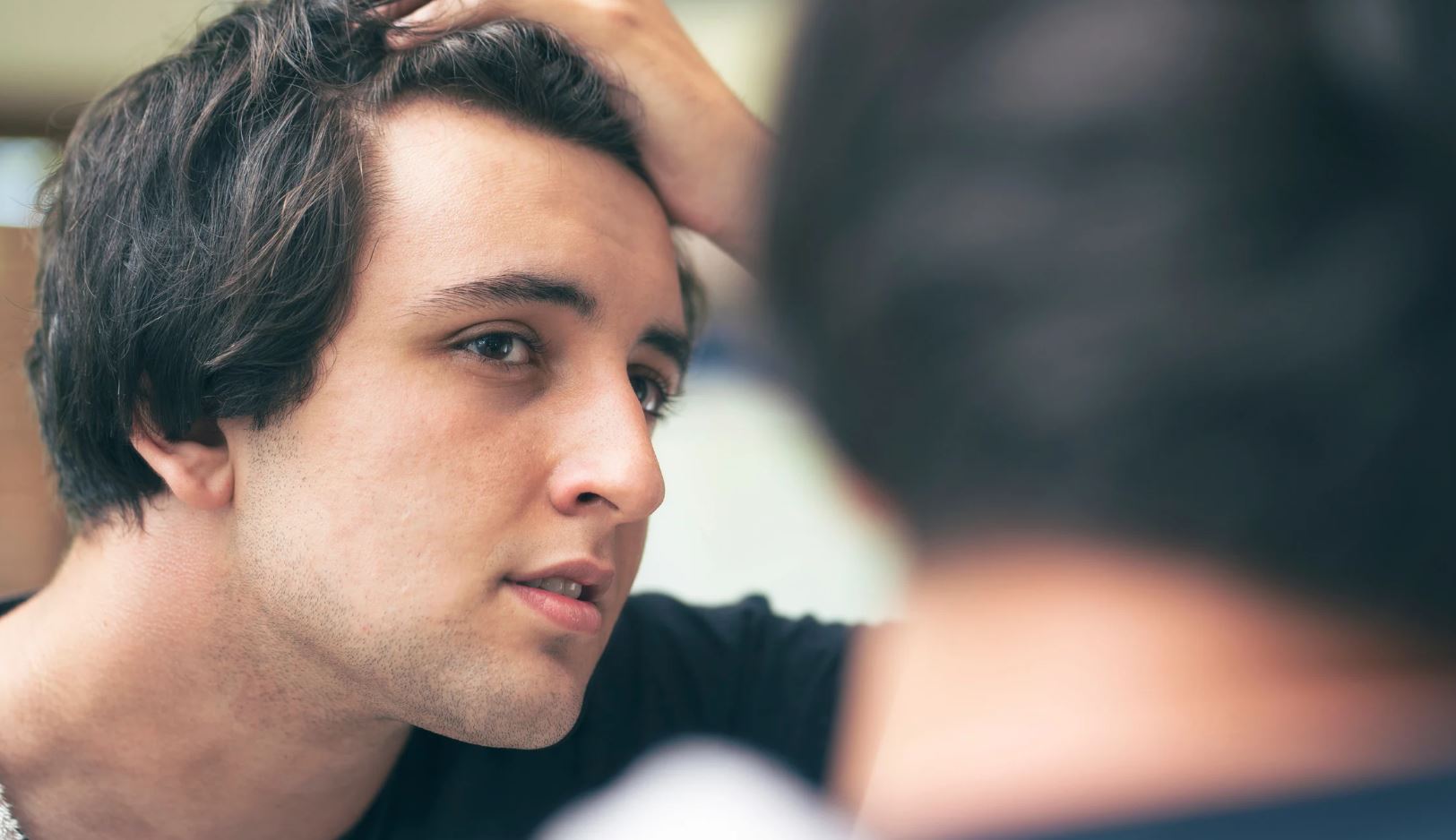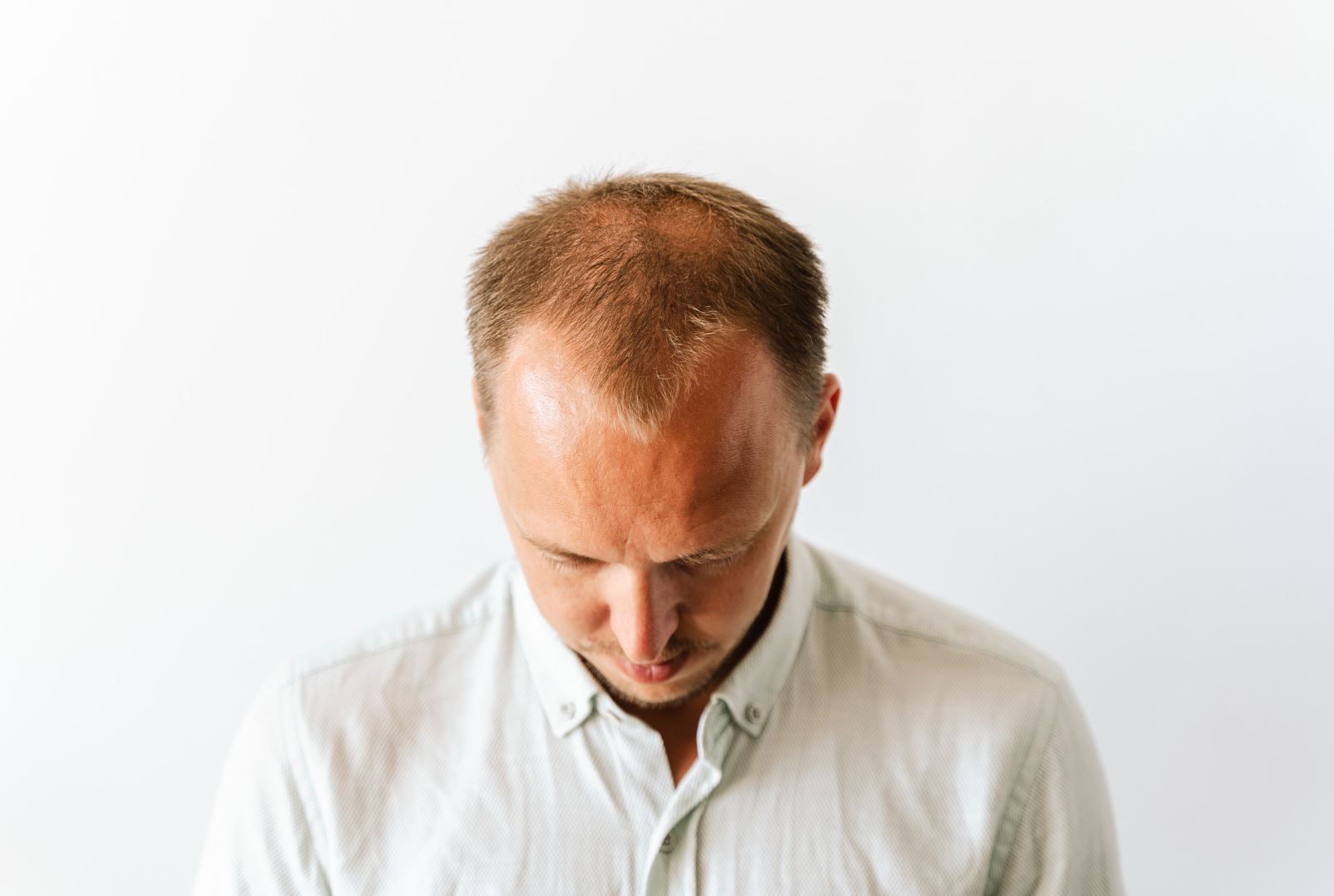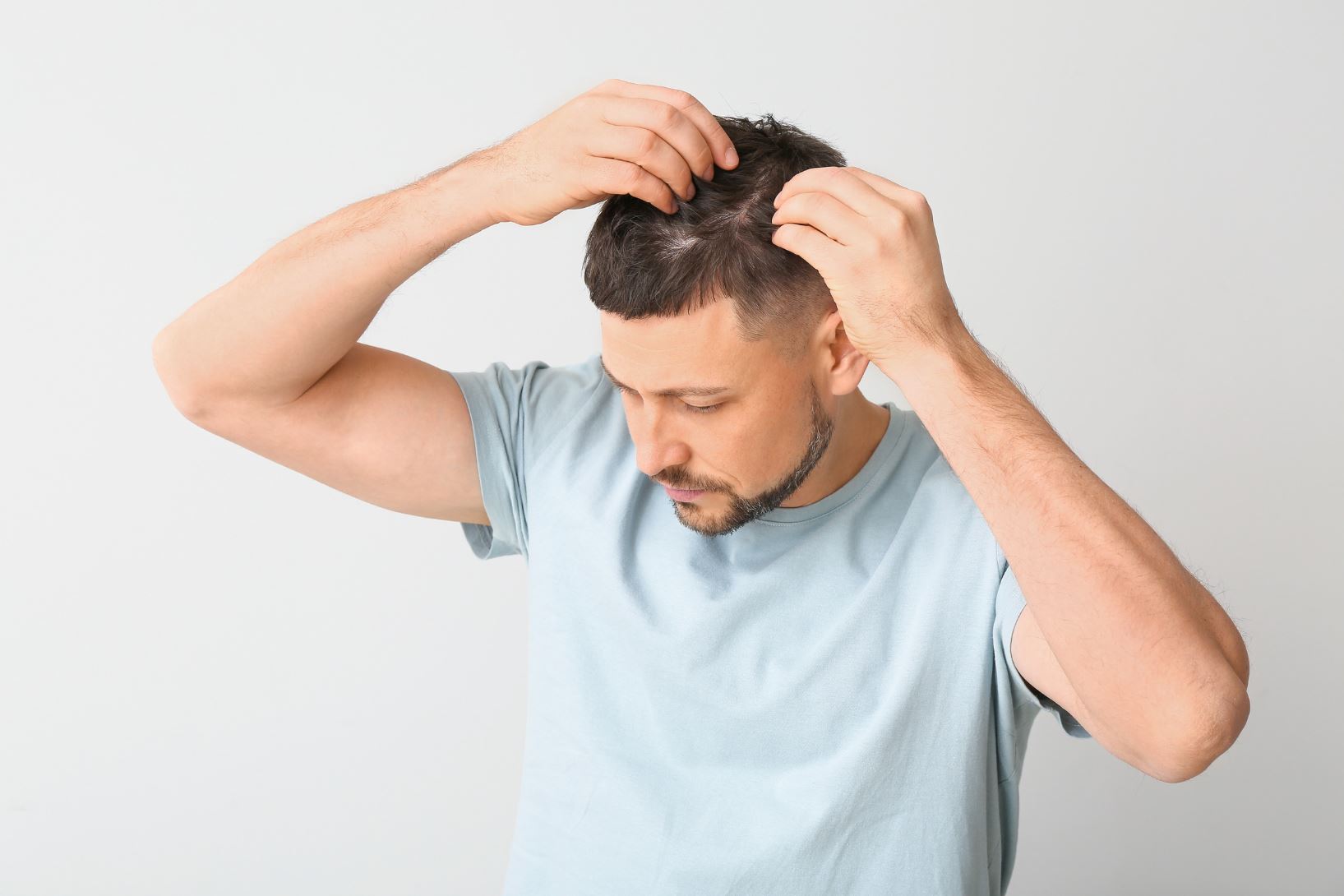Before adding hair loss supplements to your cart, read this.
We often blame stress, genetics, or hormonal imbalances when talking about hair loss. However, there’s a lesser-known culprit to baldness and most people don’t even realize it – vitamin deficiency. Lacking certain vitamins can lead to significant hair thinning and even bald patches. In this article, we will explain the link between vitamins and hair health and uncover this often-overlooked cause of hair loss.
Vitamins and Hair Health: What’s The Link?
Hair follicles are amongst the fastest-growing cells in the body and require a cocktail of vitamins and minerals to thrive. When our body is deficient in these essential nutrients, it redirects the limited supply to vital organs, leaving hair follicles undernourished.
This undernourishment can disrupt the hair growth cycle, leading to weakened hair structure, slowed growth, and eventually hair loss. This is why having an adequate amount of vitamins in the body is essential for maintaining hair health. In terms of hair growth, vitamins help facilitate important functions such as:
-
- promoting hair growth
-
- strengthening hair follicles
-
- preventing hair loss
-
- maintaining hair health
-
- regulating hormones
-
- cellular repair and protection
-
- improving scalp health
10 Vitamin Deficiencies That Are Linked To Hair Loss
Just like any body part, hair follicles depend on the right amounts of vitamins to grow strong and healthy. We recommend consulting with our hair transplant surgeon Dr. Keene or your physician before taking any supplements to support hair growth.
1. Biotin (vitamin B7)
Biotin is a water-soluble vitamin that is essential for the production of keratin, the protein that makes up the hair shaft. Keratin is responsible for the strength and elasticity of hair. Without enough biotin, hair can become weak, brittle, and prone to breakage.
2. Vitamin C
Vitamin C is an antioxidant that helps to protect cells from damage. It is also essential for the production of collagen, a protein that gives hair its structure and strength. A vitamin C deficiency can lead to dry, brittle hair and hair loss.
3. Vitamin D
Vitamin D is a fat-soluble vitamin that is essential for cell growth and differentiation, including the growth of hair follicles. A vitamin D deficiency can lead to hair loss, especially in people with alopecia areata, an autoimmune disorder that causes hair loss.
4. Vitamin E
Vitamin E is another fat-soluble vitamin that is an antioxidant. It is also important for the production of sebum, an oily substance that helps lubricate the scalp and hair. A vitamin E deficiency can lead to dry, brittle hair and hair loss.
5. Folic acid (vitamin B9)
Folic acid is a water-soluble vitamin that is essential for the production of new cells, including hair cells. A folic acid deficiency can lead to hair loss, especially in pregnant women.
6. Niacin (vitamin B3)
Niacin is a water-soluble vitamin that helps to keep the scalp healthy and promote hair growth. A niacin deficiency can lead to a dry, scaly scalp and hair loss.
7. Riboflavin (vitamin B2)
Riboflavin is a water-soluble vitamin that is essential for the production of energy, which is needed for hair growth. A riboflavin deficiency can lead to hair loss and other skin problems.
8. Pyridoxine (vitamin B6)
Pyridoxine is a water-soluble vitamin that is essential for the production of keratin, the protein that makes up the hair shaft. A pyridoxine deficiency can lead to hair loss, thinning, and breakage.
9. Vitamin A
Vitamin A is a fat-soluble vitamin that is essential for cell growth and differentiation, including the growth of hair follicles. However, too much vitamin A can also lead to hair loss.
10. Vitamin B12
Vitamin B12 is a water-soluble vitamin that is essential for the production of red blood cells, which carry oxygen to the scalp and hair follicles. A vitamin B12 deficiency can lead to anemia, fatigue, and hair loss.
How Can I Know If Hair Loss Is Due to Vitamin Deficiencies?
It’s hard to pinpoint the exact cause of hair loss without consulting with a hair loss physician. Generally, hair loss resulting from nutritional deficiencies typically occurs in a diffuse manner, meaning it often happens evenly across the entire scalp rather than being concentrated in a specific area.
Apart from hair loss, other signs may include having dry, brittle hair, or a scalp that is excessively dry or flaky. These symptoms can be indicative of deficiencies in vitamins A, B, D, and E. There are a number of ways to determine what’s causing your hair loss, including blood testing, scalp examination, hair pull test, and trichoscopy.
It’s also important to consider other factors like stress, hormonal imbalance, medical conditions, and genetics. Hair loss is often caused by male pattern baldness or androgenetic alopecia but only an experienced hair loss doctor can tell you that.
Clinically Proven Ways to Stop Ongoing Hair Loss
While there are many causes of hair loss, there are also a number of clinically proven ways to stop ongoing hair loss.
1. Finasteride
Finasteride (Propecia) is the only FDA-approved prescription medication for treating male pattern hair loss. It works by blocking the conversion of testosterone to dihydrotestosterone (DHT), a hormone that can shrink hair follicles and lead to hair loss.
Finasteride is a very effective treatment for hair loss, with studies showing that it can stop hair loss in up to 90% of men who take it.
2. Minoxidil
Minoxidil (Rogaine) is a topical medication and it’s the only FDA-approved medication for treating hair loss in both men and women. Minoxidil works by increasing the blood flow to the scalp, which can stimulate hair growth and promote thicker hair.
Studies have shown that it can stop hair loss and promote hair growth in up to 70% of people who use it. It can be applied either in liquid or foam form and most formulations use 5% Minoxidil.
3. PRP Treatment for Hair Loss
Platelet-rich plasma (PRP) therapy for hair loss involves taking a sample of the patient’s blood, purifying it in a centrifuge to extract the platelets, and then injecting the platelets back into the scalp. Platelets contain growth factors that can encourage hair growth by increasing the blood flow to the scalp and stimulating dormant hair follicles.
4. Hair Transplant
If you’re looking for a permanent solution to hair loss, you should consider getting a hair transplant. When done by an experienced hair transplant surgeon like Dr. Keene, the results can remarkably look natural. There are two main hair transplant techniques: follicular unit extraction (FUE) and follicular unit transplantation (FUT). Dr. Keene is highly proficient in both techniques with a long list of patients who are very satisfied with their hair transplant results.
Hair Transplant Scottsdale, Arizona
If you’re tired of dealing with hair loss and dream of a fuller head of hair that looks completely natural, what’s stopping you from making a change?
Schedule a consultation at Arizona’s top hair transplant clinic today. Physician’s Hair Institute serves patients in and around Phoenix, Scottsdale, Chandler, Glendale, Paradise Valley, Mesa, and the greater Arizona area.




